Integrative & Functional Medicine San Diego
Dr. Gaila Mackenzie-Strawn is Your Functional Medicine Expert! She uses functional medicine to help you find answers to the cause of your illness and the nutritional and biochemical imbalances that may be making you feel ill. Functional medicine is personalized medicine that deals with root cause of disease instead of just treating symptoms. Dr Gaila will search for underlying triggers that are contributing to your illness through cutting edge lab testing and tailor the intervention to your specific needs as an individual. She may use diet, supplements, herbals, essential oils or lifestyle changes to address your illness but will seek the most gentle way to help your body restore balance along with the least invasive treatment possible. She seeks to promote wellness and create hope, health and healing by working with you!
What is Functional Medicine
Functional medicine addresses the underlying causes of disease, using a systems-oriented approach and engaging both patient and practitioner in a therapeutic partnership. It is an evolution in the practice of medicine that better addresses the healthcare needs of the 21st century. By shifting the traditional disease-centered focus of medical practice to a more patient-centered approach, functional medicine addresses the whole person, not just an isolated set of symptoms. Functional medicine practitioners spend time with their patients, listening to their histories and looking at the interactions among genetic, environmental, and lifestyle factors that can influence long-term health and complex, chronic disease. In this way, functional medicine supports the unique expression of health and vitality for each individual.
Why Do We Need Functional Medicine?
- Our society is experiencing a sharp increase in the number of people who suffer from complex, chronic diseases such as diabetes, heart disease, cancer, mental illness, and autoimmune disorders like rheumatoid arthritis.
- The system of medicine practiced by most physicians is oriented toward acute care, the diagnosis and treatment of trauma or illness that is of short duration and in need of urgent care, such as appendicitis or a broken leg. Physicians apply specific, prescribed treatments such as drugs or surgery that aim to treat the immediate problem or symptom.
- Unfortunately, the acute-care approach to medicine lacks the proper methodology and tools for preventing and treating complex, chronic disease. In most cases it does not take into account the unique genetic makeup of each individual or factors such as environmental exposures to toxins and the aspects of today’s lifestyle that have a direct influence on the rise in chronic disease in modern Western society.
- There’s a huge gap between research and the way doctors practice. The gap between emerging research in basic sciences and integration into medical practice is enormous—as long as 50 years—particularly in the area of complex, chronic illness.
- Most physicians are not adequately trained to assess the underlying causes of complex, chronic disease and to apply strategies such as nutrition, diet, and exercise to both treat and prevent these illnesses in their patients.
How is Functional Medicine Different?
Functional medicine involves understanding the origins, prevention, and treatment of complex, chronic disease. Hallmarks of a functional medicine approach include:
- Patient-centered care. The focus of functional medicine is on patient-centered care, promoting health as a positive vitality, beyond just the absence of disease. By listening to the patient and learning his or her story, the practitioner brings the patient into the discovery process and tailors treatments that address the individual’s unique needs.
- An integrative, science-based healthcare approach. Functional medicine practitioners look “upstream” to consider the complex web of interactions in the patient’s history, physiology, and lifestyle that can lead to illness. The unique genetic makeup of each patient is considered, along with both internal (mind, body, and spirit) and external (physical and social environment) factors that affect total functioning.
- Integrating best medical practices. Functional medicine integrates traditional Western practices with what is sometimes considered “alternative” or “integrative” medicine, creating a focus on prevention through nutrition, diet, and exercise; use of the latest laboratory testing and other diagnostic techniques; and botanical medicines, supplements, therapeutic diets, detoxification programs, or stress-management techniques.
What to Expect:
- Evaluation – you will be given a full evaluation to uncover any potential impediments to optimal health
- Testing – you may be tested for food sensitivities, vitamin and nutrient deficiencies, toxins, neurotransmitters, hormone imbalances and digestive disorders
- Treatments – recommendations may include diet modification, nutritional supplementation, herbal therapy, lifestyle modification and stress reduction.
- Tracking – we will carefully track your progress with symptom questionnaires and repeat blood and urine tests
- Partnering – we will give you some interesting and informative reading assignments (articles, books, links to we sites and have you keep a health activity journal (food, exercise, sleep, etc.)










